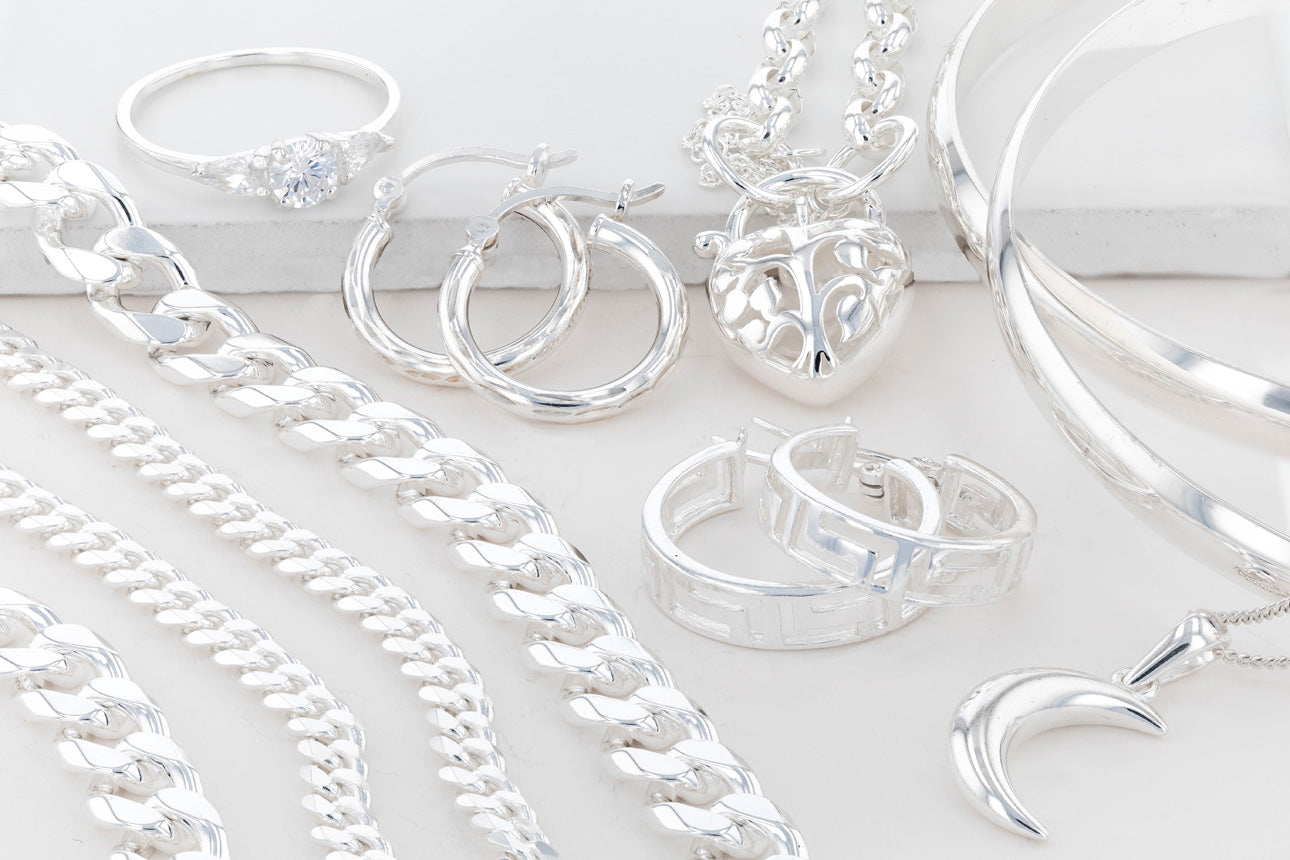The age-old discussion of what will or won’t make your jewellery corrode or discolour is one that will continue to cause discourse. With so many mixed opinions and misinformation out there, (mainly sourced from marketing efforts to make jewellery seem ultra durable) it can be difficult to figure out the best course of action! Sterling silver is a very popular jewellery for everyday wear due to its durability and retention as well as its shiny lustre. Many know that sterling silver jewellery will not cause your ears to turn green, or cause irritation like many cheap metals will, however, that is not to say that it is completely indestructible.

While sterling silver can usually get you through the day with ease, there are sometimes where your silver jewellery will become more susceptible to corrosion and discolouration, specifically if it comes into contact with certain materials like salt water.
So, can you wear sterling silver in salt water? Read on to find out more!
Overview:
Sterling Silver In Salt Water
While your favourite silver necklace or earrings may match your bathing suit perfectly, you may need to remove them before you take a dip in the water. It’s no secret that salt is corrosive, and saltwater is no different.
Sterling silver that comes into contact with salt water can cause your jewellery to darken and oxidise more quickly than it would normally. It can also leave a residue on your jewellery that will speed up the tarnishing process over time. Not only does this result is discoloured jewellery, but corrosion also affects the strength of the jewellery, which could potentially lead to unwanted breakages. To retain your jewellery’s shine and lustre, you should avoid contact with salt water altogether, that includes water in hot tubs and pools that contain even harsher chemicals!
If you jump into the ocean wearing your favourite sterling silver pieces there is no cause for alarm. Ensure that you remove them as soon as possible and give them a thorough clean when you get home and they will be okay!
For those who are frequently in the ocean or pools, a better material to try is gold or platinum. Jewellery made of these metals are less prone to corrosion and tarnishing, which means that less care is needed to retain its look.

Cleaning Sterling Silver From Salt Water
Sterling silver is made up of copper, which is what causes it to tarnish. There are a few home remedies that you can try to remove any discolouration, and even better, you probably already have these products at home.
Our favourite trick is to use non-whitening toothpaste and a q-tip to remove ‘salt stains’. Gently rub the jewellery and quickly rinse with plain water. This trick is very effective in removing minor imperfections and can help reduce the effects of saltwater contact on the tarnishing process.
Do not use toothpaste on jewellery that is plated in silver, as this will damage the finish.

Sterling silver is certainly a durable and reliable metal that is perfect for jewellery wearers. To retain the longevity and look of your favourite pieces, there are some basic care hacks that you should follow. Reduce contact with salt water and clean jewellery afterwards to reduce the effects of tarnishing and keep your jewellery shining! See some of our favourite sterling silver pieces below:



